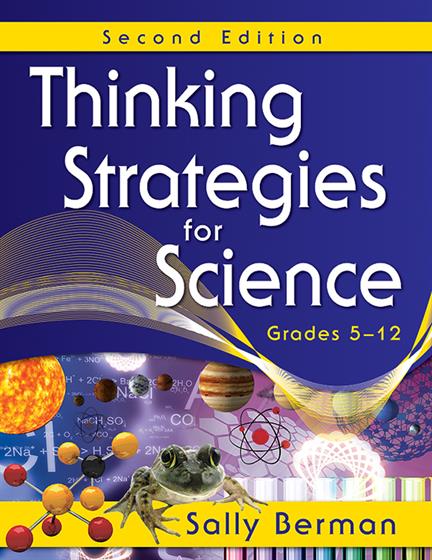Hands-on, Practical Guidance for Educators
From math,
literacy, science, equity, multilingual learners, and SEL, to assessment, school counseling,
and education leadership, our books are research-based and authored by experts
on topics most relevant to what educators are facing today.

Thinking Strategies for Science, Grades 5-12
Second Edition
By:
Sally Berman
A blueprint for science lessons that develop students' higher-level thinking skills!
This second edition of Catch Them Thinking in Science offers easy-to-use strategies for cooperative learning and provides sample units aligned with national science standards. The revised edition includes updated research, a new section on designing your own science activities, an expanded discussion of assessment methods, and an assortment of handy reproducibles. Teachers will be able to help students:
- Make their thinking visible through graphic organizers such as webs, Venn diagrams, and matrices
- Gather, process, analyze, and apply information throughout the science curriculum
- Increase their comprehension by working in cooperative learning groups
Product Details
- Grade Level: 5-12
- ISBN: 9781412962896
- Published By: Corwin
- Year: 2008
- Page Count: 144
- Publication date: August 27, 2013
Review Copies
This book is not available as a review copy.

